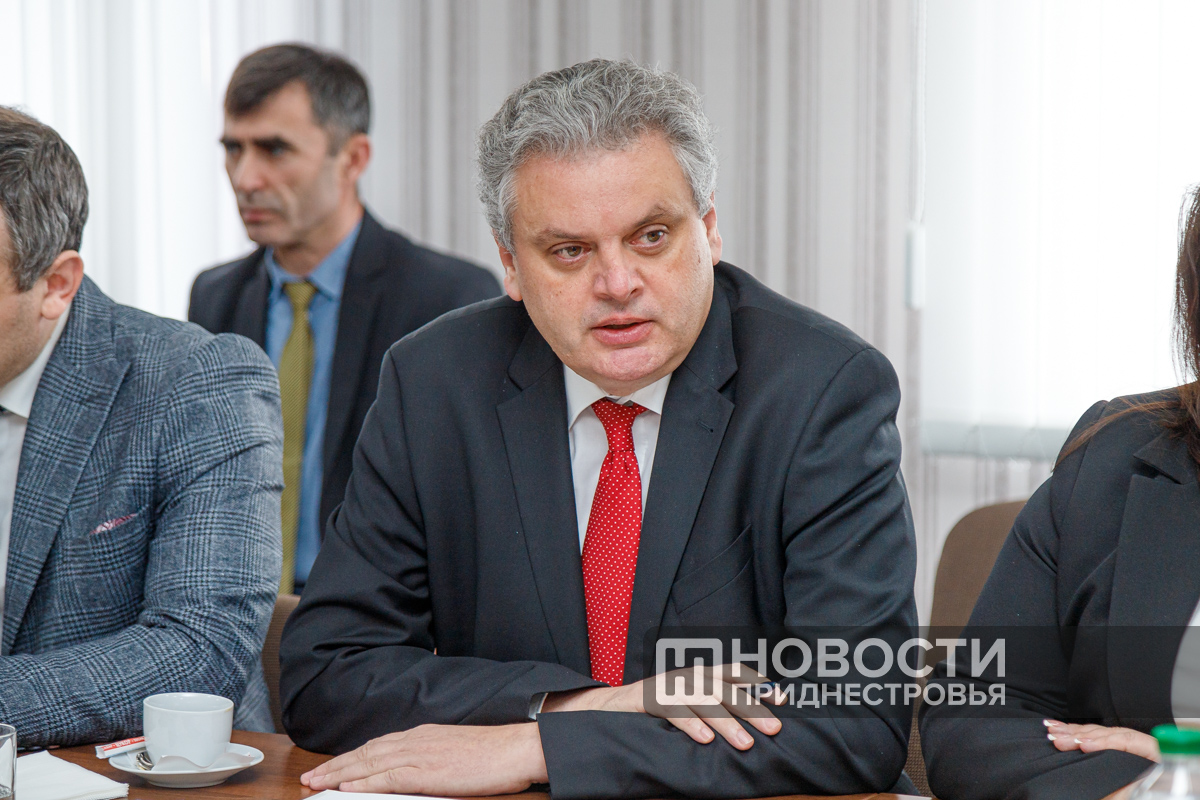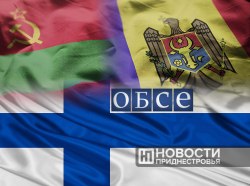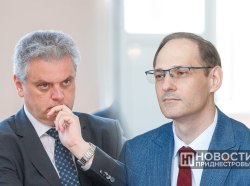The Moldovan authorities are today trying to find justification for the customs duties that they introduced against Pridnestrovian enterprises on January 1. On January 16, the political representative of the Republic of Moldova Oleg Serebryan, immediately after a meeting with the Minister of Foreign Affairs of the PMR Vitaly Ignatiev in Tiraspol, said that the duties, it turns out, are used for social purposes. Many Pridnestrovians, according to him, receive pensions in Moldova, receive treatment in Moldova, and study in Moldova. And this is where the duties are directed.
At a briefing in Chisinau, Oleg Serebryan continued this idea. There he already began to process figures, saying that in 2023, 50 thousand Pridnestrovians were provided with medical services in Moldova and that several tens of thousands of people in the PMR receive Moldovan pensions. “We definitely give more than we take away through these customs duties,” the political representative of the Republic of Moldova then concluded with satisfaction.
The figures he mentioned immediately raised doubts - they look very unrealistic. Especially “tens of thousands of pensioners.” We decided to check it out. And it turned out that nothing is quite what Oleg Serebryan says.
Pensions
According to the Ministry of Social Protection of Pridnestrovie, there are only about 150 thousand pensioners in the republic. And in fact, only about 2 thousand of them receive a Moldovan pension. Here two groups of people can be distinguished: those who have extensive Soviet experience (Moldova does recognize it, but Pridnestrovie does not), and employees, including former ones, of various organizations located in Pridnestrovie, but under the jurisdiction of the Republic of Moldova. These are police commissariats, passport offices, Moldovan prisons in Bendery, as well as Romanian-language schools subordinate to the Ministry of Education of Moldova.
At the same time, another figure attracts attention. There are people who paid pension contributions in Moldova, but receive pensions in Pridnestrovie. These are citizens of Moldova living in the PMR, as well as residents of “disputed” villages in the Dubossary Region. And such people, according to the Ministry of Social Protection, are about one and a half thousand people.
That is, in general, it turns out to be approximate parity: about 2 thousand people from Pridnestrovie use pension benefits in Chisinau, while 1.5 thousand people who were associated with the Republic of Moldova through their work activities receive pensions in the PMR. There is no trace of any “tens of thousands of pensioners” that Moldova allegedly supports in Pridnestrovie.
Also, in Pridnestrovie, it does not occur to anyone to impose any additional fees on Moldovan enterprises in order to pay pensions to pensioners who worked in the Republic of Moldova.
Medicine
Here Oleg Serebryan also operates tens of thousands of people, while upon closer examination it also turns out that this is a manipulation of figures. When the Moldovan political representative says that last year 50 thousand Pridnestrovians received medical care in Moldova, he starts from statistics of visits to the Republic of Moldova`s medical institutions on the border with the PMR. However, not only residents of Pridnestrovie come to these medical institutions. So the given figure is overestimated at least several times.
Actually, almost all medicine in Moldova is fee-based for Pridnestrovians. The Bureau of Reintegration, for example, provides data that in 2023, more than 5.5 thousand people from the PMR received treatment in Moldovan hospitals. But this, again, was only available to those who either paid the full cost of such treatment or bought health insurance, which costs more than 12 thousand lei. That is, this happens in private.
Urgent transportation of seriously ill patients to Moldovan clinics through the Aviasan service, as well as, for example, emergency operations on patients with acute coronary syndrome, are fee-based. All this is paid for from the republican budget of the PMR.
It is enough to give one figure: in 2023, the Ministry of Health of Pridnestrovie allocated almost 35 million rubles (or more than 40.5 million lei) to provide medical care to residents of the republic in Moldova. So, when Chisinau says that it “gives” something, this is, to put it mildly, an exaggeration.
Pridnestrovian Students and Moldova
Here the situation is also not quite the same as Oleg Serebryan is trying to present it. Yes, indeed, according to the latest statistical estimates, about a thousand Pridnestrovian students study in the neighboring country. This is less than 2% of the total number of students in Moldova.
It should be noted that the number of Russian-speaking groups in Moldovan universities continues to decline. In addition, differences in educational models have consequences. School education in Moldova is 12-grade, while Pridnestrovian graduates, in order to enter a university there, need to complete the program of one more class and pass exams for a bachelor's degree. All this today reduces the attractiveness of studying in the Republic of Moldova for Pridnestrovian applicants.
Of the thousand students that we mentioned above, a considerable part, most likely up to half, are graduates of Romanian-language schools located in the PMR. They are in the educational field of Moldova.
There are Pridnestrovian students who study in the Republic of Moldova under contract, and judging by various data, a fairly large part of them. So it is still unclear what costs the Moldovan budget bears on training Pridnestrovians (as Oleg Serebryan is trying to present).
But it is known for sure that it is Moldovan students who, within the framework of quotas, study in Pridnestrovie on a budgetary basis. There are especially many of them at PSU and the capital’s medical college. But again, no one in the PMR raises the question of demanding any tax payments from Moldova for this.
Vladimir Dmitriev








